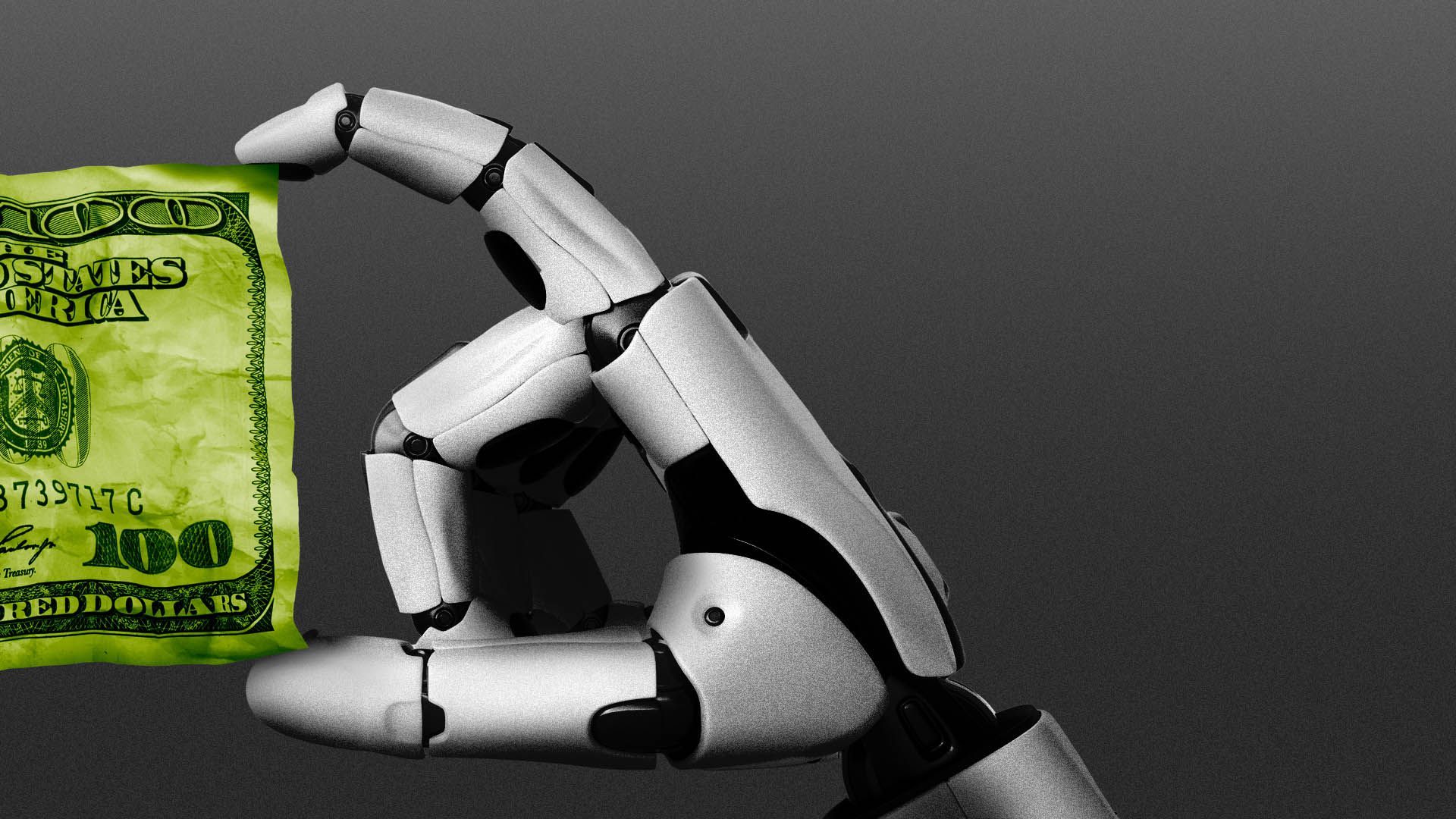Illustration: Sarah Grillo/Axios
Y Combinator co-founder Paul Graham last week tweeted that automation is enabling founders to grow successful companies with fewer people, adding that “in the limit case you’re left with just the founders.”
- This came in the wake of OpenAI, led by Graham protégé Sam Altman, releasing a generative AI tool that eventually could enable engineers to do more in less time.
A big question is if the venture capital market on the verge of a counterintuitive dichotomy, whereby the number of tech startups grows but the amount of required monies shrinks.
What to know: It’s much cheaper to launch a startup in 2022 than it was in 2012 or 2002, thanks to secular tech trends like cloud computing. Yet typical startups have raised much more venture capital, beyond what can be explained away by delaying IPOs.
- Graham believes, per an email to Axios, that “a lot of the reason startups have taken so much money lately is simply because so much is available … I don’t think it has to be as expensive as it has been.”
- In a tweet, Graham pointed out that Instagram only had 13 employees when it was bought by Facebook for $1 billion.
The other side: Top venture capitalists contacted by Axios unanimously insist that AI won’t shrink startup capital needs (and, consequently, their industry). Some of this might have been delusional self-defense, but it was pretty persuasive.
- One big argument revolves around how, as startups scale, they require much more than just software developers. Sales, support, etc. After all, Instagram didn’t have revenue when it was bought by Facebook (which had employee armies to aid in its subsequent growth). As AI pushes the cost of software down, the surrounding demand will increase.
- Then there’s also an updated version of the tractor thesis, in which the destruction of old jobs leads to the creation of new jobs. In this case, all of the controls around AI — everything from security to safety to legal. Or, as one VC put it: “If you surrender to the black box, you acquire an insane amount of liability.”
The bottom line: Traditional startup structures may face an inflection point once AI efforts like ChatGPT mature, but venture capitalists still believe there will be plenty of need for their primary product.
Credit: Source link



Comments are closed.